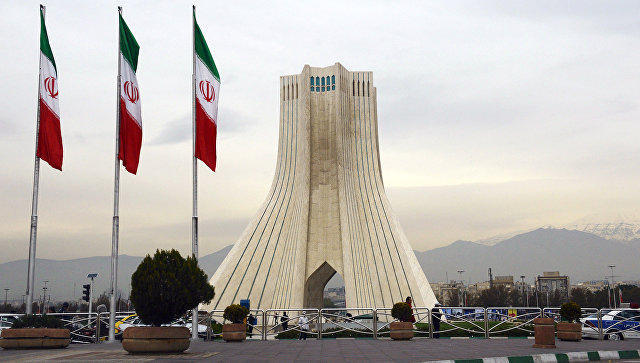Iran risks losing remnants of international support

By Trend
By rejecting the Financial Action Task Force (FATF) bill, Iran runs the risk of losing the fragile support that the international community is still lending to it.
Iran's Parliament has endorsed the FATF bill on combating the financing of terrorism (CFT); however the bill failed to pass the Guardian Council – a supervisory body overseeing the Iranian Parliament.
The bill, passed by the Parliament on October 7, is one of four put forward by the government of President Hassan Rouhani in order to meet demands set by FATF.
Even Iran's foreign minister Mohammad Javad Zarif, who is used to deal with diplomatic language, could not keep his regret about the rejection of the CFT bill, and criticized the current negative attitude in some circles of the Iranian society against the approval of the documents, saying that there are groups in the country that profit from money laundering.
Pointing to the confidential facts in this case, he admitted: "Even if I have any proof of it, I will not be able to make it public, but there are many cases that show the volume of money laundering in the country."
"I don't want to point finger at someone, but there are some places where thousands of billions of rials is laundered, Zarif said. “I do not accuse any organization. I think of individuals who benefit from this negative atmosphere."
Iranian hardliners believe, sincerely or not, that accepting FATF demands is a threat to the national sovereignty and may lead to losing it.
Kazem Sedighi, one of the well-known clerics, has praised Guardian Council for rejection of the FATF bill, Iranian media reported.
“Today, we are asking the authorities to not approve the humiliating bills of FATF which is similar to capitulation treaty (the so-called capitulation law - diplomatic immunity from the local jurisdiction, granted by the Shah to American military personnel in Iran in 1964),” he said.
“The Supreme Leader has stated that these laws are written to colonialize us, so we appreciate the Guardian Council that rejected the bills", he said.
The bill should finally be sent to Expediency Discernment Council to decide its fate. The Council is an advisory body in Iran’s political structure acting as an arbiter, in which the Conservatives make absolute majority.
Meanwhile, 40 conservative MPs have sent a letter to the Expediency Council, urging it to reject a package of bills making Iran a party to international agreements on combating terrorism financing and money laundering, Radiofarda reported.
“I think the opinion of the Expediency Discernment Council, according to the position of Ayatollah Movahedi Kermani has already been announced,” MP Jalal Mirzaie said. “It is clear that this dispute is not supposed to be resolved.”
In the meantime negative effects were just around the corner.
Due to the rejection of the CFT bill, the UAE banks have blocked more than 1,500 Iranian bank accounts, and their condition to re-open the accounts is joining FATF, the head of Iran - UAE Chamber of commerce Masoud Daneshmand said in an interview with Trend.
The Emirates’ bankers said that any financial transfer must be transparent and within the framework of FATF, and since Iran is not a member of it, they cannot have any bank account in the UAE, he added.
The CFT bill has passed in the Parliament by low votes and had many opponents who supposed to be following the benefits of specific groups that seek lack of transparency of financial transactions, weakening government and capital accumulation by creating fluctuations in the market, Iranian economist Mahmoud Jamsaz told ILNA.
"Some of these groups have benefited greatly from the previous sanctions," he added.
"Although the Europeans are looking for resolutions like Special Purpose Vehicle (SPV) to facilitate the banking transactions, their decision will be weakened by such Iran’s approaches and lead the US to claim that Iran lacks financial transparency. This will hurt the small and medium European companies so they might refuse to invest in Iran," the expert said.
Referring to the remained time of passing the FATF bills (February is a deadline), Jamsaz says that if the FATF bills will not go through in the upcoming 4 months, even Europe, Russia and China won't support Iran, since they are also following their own interests and will not get into a trade war with the US because of the Islamic Republic.
Another economic expert, Kamran Nadri, also believes that if the FATF requirements and recommendations are not met by Tehran, the financial relations of such friendly countries as Russia and China with Iran will become very complicated, according to Khabarfarsi.
Even the neighboring countries won’t cooperate with Iran if it doesn’t have financial transparency, Member of the Iranian Parliament’s Agriculture, Water and Natural Resources Committee Jalal Mahmoudzadeh said in an interview with ILNA last week.
“Without financial transparency, European banks won’t cooperate with us,” he said. “FATF projects should be approved if we want to carry out banking operations with other countries.”
Today, Iran is not in a position to ignore the support from major world powers such as the EU, Russia or China, and risks being targeted by them. Perhaps, the issue can go even further and the EU, as well as others may at some point decide to entirely join the US sanctions.
So after all, there is a question: which one is a real threat to the national sovereignty – enactment of CFT bill or inability of the Iranian foreign minister to make the ugly facts public?
---
Follow us on Twitter @AzerNewsAz
Here we are to serve you with news right now. It does not cost much, but worth your attention.
Choose to support open, independent, quality journalism and subscribe on a monthly basis.
By subscribing to our online newspaper, you can have full digital access to all news, analysis, and much more.
You can also follow AzerNEWS on Twitter @AzerNewsAz or Facebook @AzerNewsNewspaper
Thank you!
